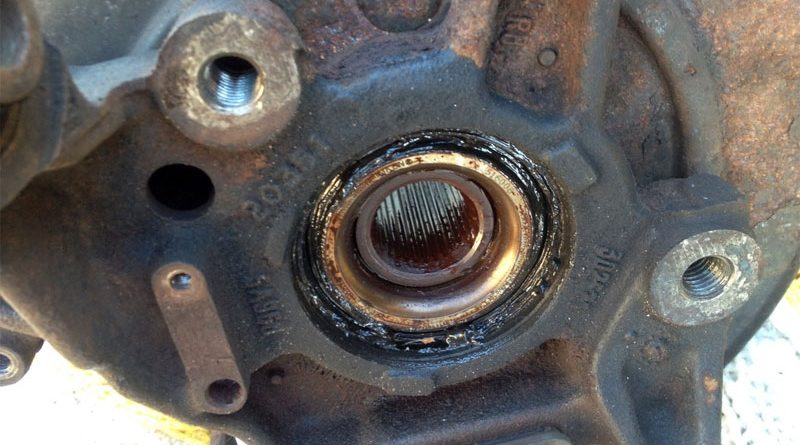WHAT ARE WHEEL BEARINGS AND WHAT CAUSES WHEEL BEARING MALFUNCTION?
If you are hearing a strange, unusual noise coming from your car while you’re driving, it’s possible you may be experiencing wheel bearing malfunction. Wheel bearings are safety-critical components that are designed to sustain axial and radial loads caused by breaking, accelerating, and cornering. A crucial part of your vehicle’s good functioning, problems with wheel bearings need to be addressed quickly to prevent further damage.
What Are Wheel Bearings?
Wheel bearings are sets of steel balls or tapers held together by a metal ring. They enable the wheels to rotate smoothly with minimal friction. At the center of a vehicle’s wheels are hollow pieces of metal called hubs. Wheel bearings fit tightly within the hubs and ride on metal axle shafts, which helps to reduce friction when wheels spin.
Wheel bearings are different from engine bearings in that there is no constant source of lubrication. This means that wheel bearings need to be tight in order to keep away debris, water, and dust. Additionally, they support the entire vehicle’s weight while it is operation, which is the reason they are subject to a lot of wear and tear.
WHAT CAUSES WHEEL BEARING MALFUNCTION?
There are a number of reasons wheel bearings might fail. The following are some common causes for wheel bearing failure.
Driving Conditions

Frequently driving through mud, water, or road salt can cause wheel bearing malfunction. Contaminants can get past the seals and enter the bearings, which pollutes the grease and damages the bearings.
Quality
As with any car part, the quality of the wheel bearing makes a big difference in terms of how long it will last. Bearings are precision products, and therefore need complex manufacturing processes. Low-quality steel often has poor heat-treating that can spall and wear prematurely and contain hard or soft metal that leads to failure. It is important to consult with a trusted auto mechanic to ensure your car is outfitting with strong, durable wheel bearings.
Uneven Roads
The more frequently you drive on uneven terrains, the more likely it is that your wheel bearings will become damaged and worn. Over time, the steel balls will develop damaged areas that will limit their ability to reduce friction for wheels. At that point, taking your car to an auto repair shop is necessary.
Poor Installation
The simplest errors, such as using the wrong tools, can cause damage to the exterior or interior of the wheel end bearing. This causes the wheel bearing to fail prematurely. Reusing older accessories, such as nuts, bolts, splint pins, and seals, can also cause wheel end bearings to operate unsafely, which increases the risk of an accident.
Imbalanced tires
It is critical for any good car maintenance routine to make sure your vehicle’s tires are balanced. Otherwise, some wheel bearings will endure more pressure and stress than others, leading to damage. Take your car in to a car garage and have a car mechanic take a look if you suspect your tires are imbalanced.
Accidents
An automobile accident can cause damage to any part of a vehicle, including wheel bearings. An impact that even slightly dents them can cause malfunction. Potholes, speed bumps, and even hitting curbs can cause damage to wheel bearings that can be diagnosed by an auto mechanic.
HOW DO WHEEL BEARINGS AFFECT CAR PERFORMANCE?
Wheel bearings are a critical part of vehicle performance. They are important to the healthy function of any vehicle in that they help the wheel rotate smoothly. Additionally, wheel bearings are necessary for decreased friction caused by various other parts of the drivetrain system. When they become damaged or need to be replaced, serious problems can occur that can ultimately be very costly. Further, when wheel bearings are not replaced by a trained auto mechanic using the proper tools, damage can become even more severe.

Wheel bearings have an average lifespan of 85,000 to 100,000 miles. If you notice unusual noises, such as humming, growling, or rumbling noises that increase with acceleration, it is important to have your car examined by an auto repair technician as soon as possible. You might start to hear a howling sound during acceleration and deceleration, which can signal problems with gears and differential pinion bearing preload. Accompanied by a rumbling sound, this could mean the bearings are failing to support the gears sufficiently.
Looseness, vague steering or steering wheel vibration, and ABS system malfunctioning can also be signs of problems with your wheel bearings. Driving with worn wheel bearings can cause serious damage to your drive-axle and steering assembly and ultimately be a major safety hazard. Driving on a bad wheel bearing puts stress on the hub and CV joint, brake system components, and ultimately on the transmission itself. Replacing wheel bearings is somewhat complicated, so it requires professional assistance.
COMMON BRAND ISSUES
- Jeep – Some types of Jeeps often experience issues with wheel bearings. Operators will notice strange rumbling noises coming from the wheels. This is usually a sign of worn out wheel bearings. This noise will be most noticeable when the vehicle is operating at speeds over 30 mph and when turning corners at low speeds. Replacing faulty or worn out wheel bearings will usually fix the problem.
- Subaru – Subarus also often encounter issues with wheel bearings. On some models, the bearings bolt in, either replacing the entire unit hub or transferring over to the hub. Subaru has extended the warranty on rear wheel bearings to 100k on certain vehicles, so it is important that you know to what kind of issues your make and model might be susceptible. If you are not sure if your Subaru is prone to wheel bearing malfunction, ask your local mechanic.
